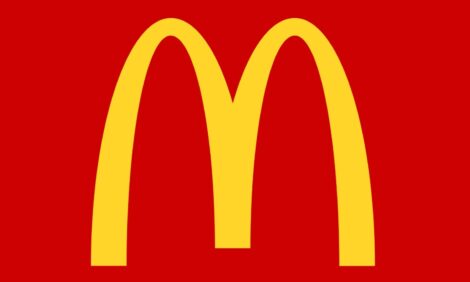



Seed companies retooling oilseeds to crack new markets
US poultry industry, Chinese dairy sector are two target marketsDeep within a suburban St. Louis warehouse, rows of ID-tagged soybean plants, bred using artificial intelligence, stretch toward precision-timed grow lights and sway as fans circulate a custom mix of carbon dioxide and humidity, reported Reuters.
These soy varieties in Benson Hill's 47,000- square-foot "crop accelerator" produce beans with exceptionally high protein to satisfy two competing demands: Supply the growing biofuels sector and expand the market for soy meal.
"We're going to utilize the full genetic potential of the plant to produce things that are more meaningful and valuable," said Matt Crisp, Benson Hill's co-founder and CEO.
Seed and food technology companies like Benson Hill and larger player Corteva CTVA.N are urgently trying to change the nutritional profile of oilseeds to meet an anticipated surge in demand for soybean and canola oil to produce biofuels over the next five years.
Finding new markets for meal, the less valuable oilseed product, is critical to encouraging U.S. and Canadian farmers to expand plantings, company executives and researchers said.
Reuters made a rare visit to Benson Hill's research facility, and spoke to more than a dozen company executives, farmers and researchers, including those directly involved in developing the oilseed varieties, who said boosting protein content and digestibility was key to opening new markets, particularly for aquaculture.
The federal government's US Energy Information Administration said in February that annual US renewable diesel production could more than double by 2025, reaching 5.9 billion gallons, driven in part by tax credits for renewable fuels under President Joe Biden's Inflation Reduction Act.
In response, US soybean crushers are planning to expand capacity by 30% over three years, while Canadian canola crushing looks to jump 60%.
"It's going to be a challenge for sure to move that much meal, soy and canola," said Frank Hart, managing director of special projects for AGT Food and Ingredients, which is planning a Canadian canola-crushing plant. Without new markets he expects canola meal prices to fall about 14%.
The industry hopes to jumpstart demand for soybean meal from European, South American and Asian salmon farms and US poultry operations.
Benson Hill's ultra-high protein soybeans contain 45% to 50% protein, up from 36% to 39%. They are currently produced on just 0.2% of the 87.5 million US acres devoted to the crop.
Benson Hill is expected to launch a genetically modified herbicide-tolerant variety in 2025, targeting US poultry and Chile's salmon farms, said Kyle Smith, director of grower innovation.
Corteva, working with crusher Bunge, is developing soybeans with higher protein and amino acids for the poultry industry, while maintaining crop yields and oil content.
Corteva and Bunge are also working on higher-protein canola. It's a difficult process. Reduce fibre too much and the seed won't hold together.
"Is it easy? No," said Tyler Groeneveld, Corteva's North America commercial grains and oils leader. Corteva aims to bring high-protein canola to market this decade, he said.
Field to fish farm
For Iowa farmer Hans Riensche, Benson Hill's non-GMO ultra-high protein soybeans offer a chance to break into Europe's aquaculture market.
"This is a way we can crack into it in a really big way," Riensche said.
Salmon and trout farms currently use only small amounts of regular soymeal because some naturally occurring carbohydrates irritate digestive tracts of the fish and slow growth. The new varieties are more digestible.
Crisp said Benson Hill was partnering with European soy processor Denofa and U.S.-based Riverence Holdings to help scale up demand for soybeans tailored to aquaculture.
Benson Hill has also struck deals with Kellogg's and Archer-Daniels-Midland to expand in human food ingredients for plant-based meats and dairy, and protein-enriched flour for baked goods, Crisp said.
Alberta-based Botaneco is scaling up a canola product that is 75% protein and intended as feed for shrimp and salmon. It plans to build a C$300-million ($223.66 million) plant within three years to produce 100,000 tonnes of canola protein concentrate annually.
Four aquaculture companies in Asia and Europe are testing Botaneco's canola protein concentrate, said Chief Operating Officer Dave Dzisiak.
China's dairy industry is likely to absorb much of Canada's canola meal, said Brittany Wood, canola utilization director at Canola Council of Canada.
"Long-term, there will be enough demand," Wood said.
($1 = 1.3413 Canadian dollars)



